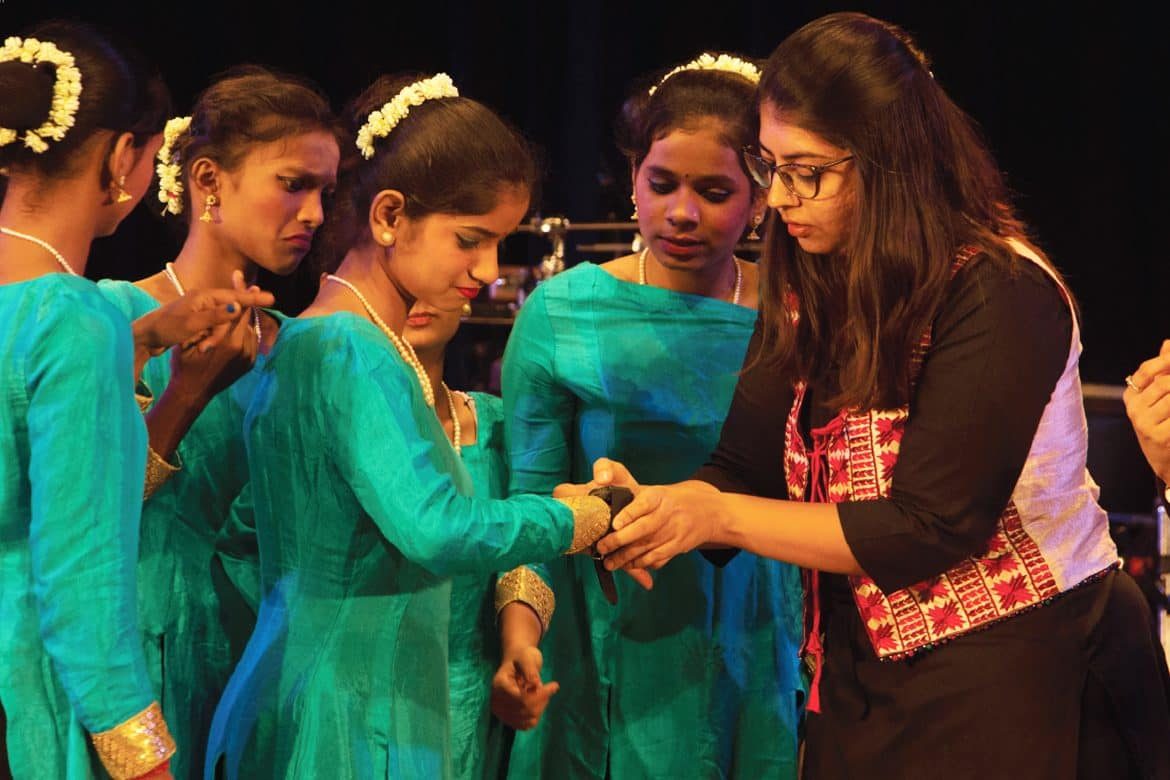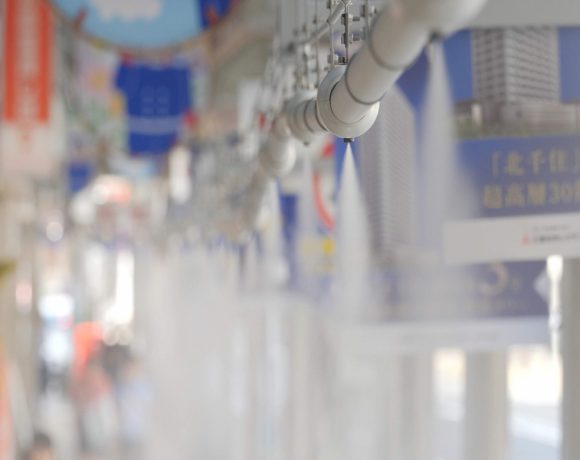- The idea of communicating sounds through vibrations had occurred to Nupura and Jahnavi while watching a dance performance by a group of deaf girls. At their rehearsals, Nupura and Jahnavi noticed them touching the speakers to pick up on the rhythm of the song. And that’s when it struck them that a device that communicated sounds through vibrations could be a great way to help the girls perform effortlessly.
- Nupura describes the ecosystem for social impact startups in India as nurturing and supportive. They were selected by Social Alpha (a Tata Trust incubator for social innovators) for incubation, mentoring and funding.
- BleeTV started as a Whatsapp group for deaf people who wanted information. They would send in their queries and the BleeTech team would respond in sign language videos. The service became so popular that it was developed into an app.
BleeTech is a social impact startup working to improve the lives of the deaf community in India. Started by two graduates from MIT Institute of Design in Pune, Nupura Kirloskar and Jahnavi Joshi, BleeTech has two main services – BleeWatch and BleeTV. BleeWatch is a wearable device that communicates sounds to the deaf through vibrations, and BleeTV is an app that offers information to the deaf through sign language videos. This article charts the course of BleeTech’s journey from an idea to a service that is changing the lives of the deaf community in India.
When Nupura and Jahnavi presented the concept of BleeWatch at their university, the idea was met with a lot of scepticism. The panelists reviewing the concept were not convinced that vibrations could communicate sounds to the deaf. As they did not have a prototype to showcase, they received low grades and the idea was abandoned for a while. Their belief in their idea, however, lingered. But they didn’t know how to develop it into a saleable product.
The idea of communicating sounds through vibrations had occurred to Nupura and Jahnavi while watching a dance performance by a group of deaf girls. The dancers were constantly looking at their instructor for sound cues. At their rehearsals, Nupura and Jahnavi noticed them touching the speakers to pick up on the rhythm of the song. And that’s when it struck them that a device that communicated sounds through vibrations could be a great way to help the girls perform effortlessly.
In their final semester, they revived their plan to work on BleeWatch with the encouragement of a faculty member. The first step was to get the prototyping right. They attended a workshop by MIT Sloane in Bangalore for business development and hardware acceleration. Over the course of the workshop, two things happened – 1) they developed a workable prototype and 2) they decided to become entrepreneurs and registered BleeTech as a private limited company.
Entering the ecosystem
Nupura describes the ecosystem for social impact startups in India as nurturing and supportive.
The prototype they had developed had been tested on users and had received overwhelmingly positive responses. It could now communicate many types of sounds to the deaf – ringing of the doorbell, the sound of a baby crying, etc. As a result, they were selected by Social Alpha (a Tata Trust incubator for social innovators) for incubation, mentoring and funding. “Luckily we had good mentors and investors who understood the work very well and knew what kind of challenges we would face. They were patient and didn’t expect us to churn out results very quickly,” said Nupura.

The final prototype, BleeWatch
One of the biggest challenges that Nupura and Jahnavi were facing at the time was not having sufficient technical knowledge. While their prototype was working, it needed a lot of improvement, which they were unable to do on their own. Once they received funding from investors like Social Alpha and IIT Mumbai, they decided to outsource it. The product development was then outsourced to Design Alpha, a subsidiary of Social Alpha, where it is currently being developed for large scale manufacturing.
Finding users for their product
Since the product development had been outsourced, Nupura and Jahnavi set about finding customers. They onboarded two new (deaf) members in their team to help them with sales. While working with their new team members, they realised that the deaf community struggled with the English language. Their teammates were often unable to understand the emails or text messages sent to them. They were also largely unaware of what was going on around them, not being able to understand much from newspapers or television channels due to their inability to understand the language. And the idea of BleeTV took shape. BleeTV started as a Whatsapp group for deaf people who wanted information. They would send in their queries and the BleeTech team would respond in sign language videos. The service became so popular that it was developed into an app. Within the first year, the app had nearly 10,000 downloads and 3000 active users. The premium version of the app is currently available in the market with over 100 paid customers.
Challenges and future roadmap
Public utilities, infrastructure and education are accessible at subsidised rates to the deaf community in India. Getting them to opt for a paid service is going to be challenging for the founders of BleeTech. The startup is currently running on grants. However, eventually, they are going to need customers who are willing to pay.
Despite the odds, the founders are going ahead with plans for expansion. BleeWatch will soon be introduced into the market. BleeTV is doing incredibly well with users in India and neighbouring countries such as Nepal and Pakistan. BleeTech has plans of working closely with schools for the differently abled and have already built digital libraries for eight schools in Pune, India.
Innovations like these are crucial to the growth and inclusivity of the differently abled community. However, for such startups, sustainability is a big problem. One hopes that with their proven track record of working around difficult challenges, Nupura and Jahnavi will find a way to counter this too, and keep trailblazing on.

Nupura Kirloskar & Jahnavi Joshi






NO COMMENT